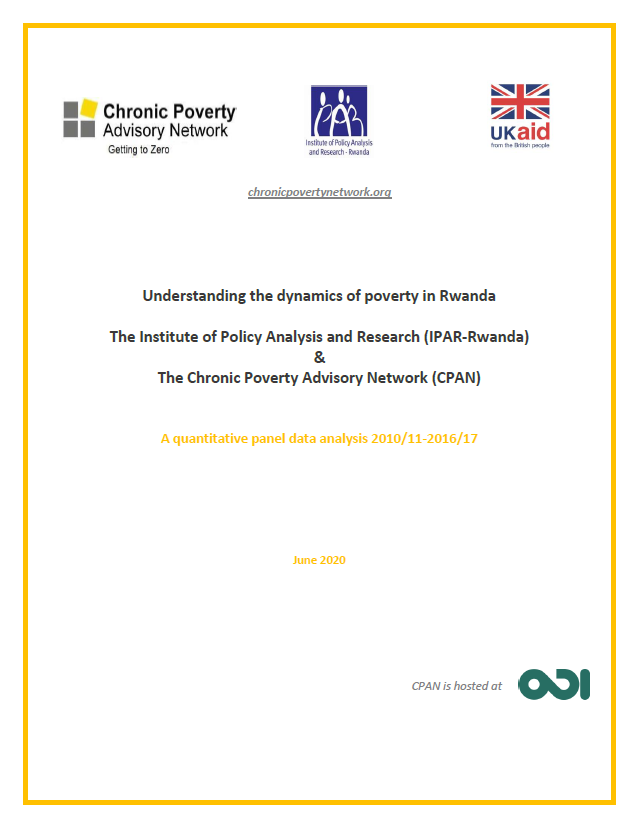Overview
While poverty rates in Rwanda have fallen significantly since the 2000s, the latest estimates reveal a slowdown in the poverty reduction rate. This calls for a better understanding of poverty and poverty dynamics in the country. In this paper, we use the latest three waves of Rwandan panel data, collected in 2010/11, 2013/14 and 2016/17, to characterise the dynamics of poverty in Rwanda and explain the slowdown in poverty reduction. Our results show that education, health insurance, diversification of occupations within households and savings all promote escape out of poverty and prevent impoverishment. The Girinka Programme acts as a lift out of poverty, while business creation has protective effect against impoverishment. Observed trends of these variables, especially the increase in households depending on agriculture wages and the reduction of business owners at the household level, appear as important factors in the slowdown in poverty reduction in Rwanda.
Authors: ODI & IPAR

